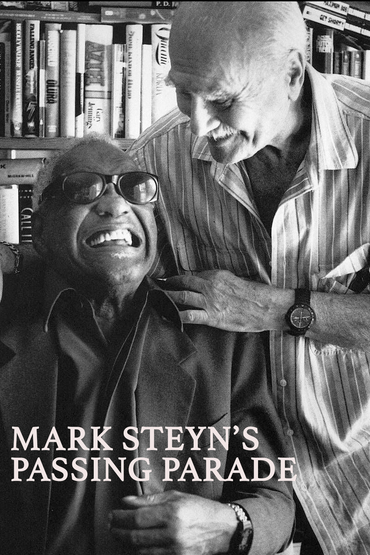Just ahead of this weekend's instalment of Mark Steyn's Passing Parade, this is the fourth birthday of The Mark Steyn Club and I want to thank especially all those enthusiasts from the early days who've decided to re-up for a fifth year. Among them is Irene, a First Weekend Founding Member from Connecticut:
This is the best deal in town! Love your show, love your Tales for Our Time, love your Week in Review, etc., etc., etc.
Take care and best always.
Irene.
Thank you, Irene. But don't forget the video poetry: the latest entry to our anthology airs Sunday.
If, unlike Irene, you're new to the Club, or if the day's developments simply make you despair, there's nothing healthier than taking a short break from the hell of the hamster-wheel news-cycle and exploring the delights of our Tales for Our Time home page. It's configured in Netflix tile style, with the stories organized by category - thrillers, fantasy, romance, etc - which we hope will make it easy for you to find a favorite diversion of an evening.You can access four dozen of our cracking yarns here - and all previous episodes of Mark Steyn's Passing Parade here.
And with that welcome to Part Eleven, in which I eulogize a brace of musical giants of the twentieth century - one of whom was a boyhood idol of the other, as you can see at right when they finally met. One was white and hated the "music business'; the other was black and blind - so he couldn't see a lot of the things his idol hated about the business. All Artie Shaw wanted to hear was the music - and in that respect Ray Charles had an advantage:
Even singing hillbilly with the Florida Playboys, the teenage Ray Charles already seemed like a man who transcended the facts of his life. When he'd lost his sight, his mother had sent him to the state school for the blind in Saint Augustine. It had a white section and a colored section, and even at the time Ray thought it "kinda weird" that white kids and colored kids who couldn't see which was which nevertheless had to be segregated on that basis. "Ain't that a bitch," he said.
You wonder what other segregations make less sense to those who can't see them. Almost as soon as he hit the big time, critics complained that he'd sold out—when he left Atlantic Records, when he got a string section, sang country, went Hollywood, did show tunes. But isn't a lot of that prejudice to do with the externals—the orchestra's tuxedos, the Nashville cowboy getups, a suburban concert hall filled with middle-class white folks? If you can't see any of that, all you can hear, as Ray Charles heard growing up, is the music. "Take Artie Shaw," he said. "I didn't even know he was white. "
Members of The Mark Steyn Club can hear me read Part Eleven of Mark Steyn's Passing Parade simply by clicking here and logging-in.
On this fourth birthday of our Club, If you've yet to hear Passing Parade or any of our Tales for Our Time, you can do so by joining The Mark Steyn Club and enjoy our nightly audio adventures every evening twenty minutes before lowering your lamp - or hoard the episodes and binge-listen at the weekend or on a long car journey, if your government still permits you to take one. For more details on that and other benefits to Steyn Club membership, see here - and don't forget our special Gift Membership.
Please join me right here next weekend for another episode of Mark Steyn's Passing Parade.

